Quebec City air quality tests are 'reassuring' but also vague about sources of pollution
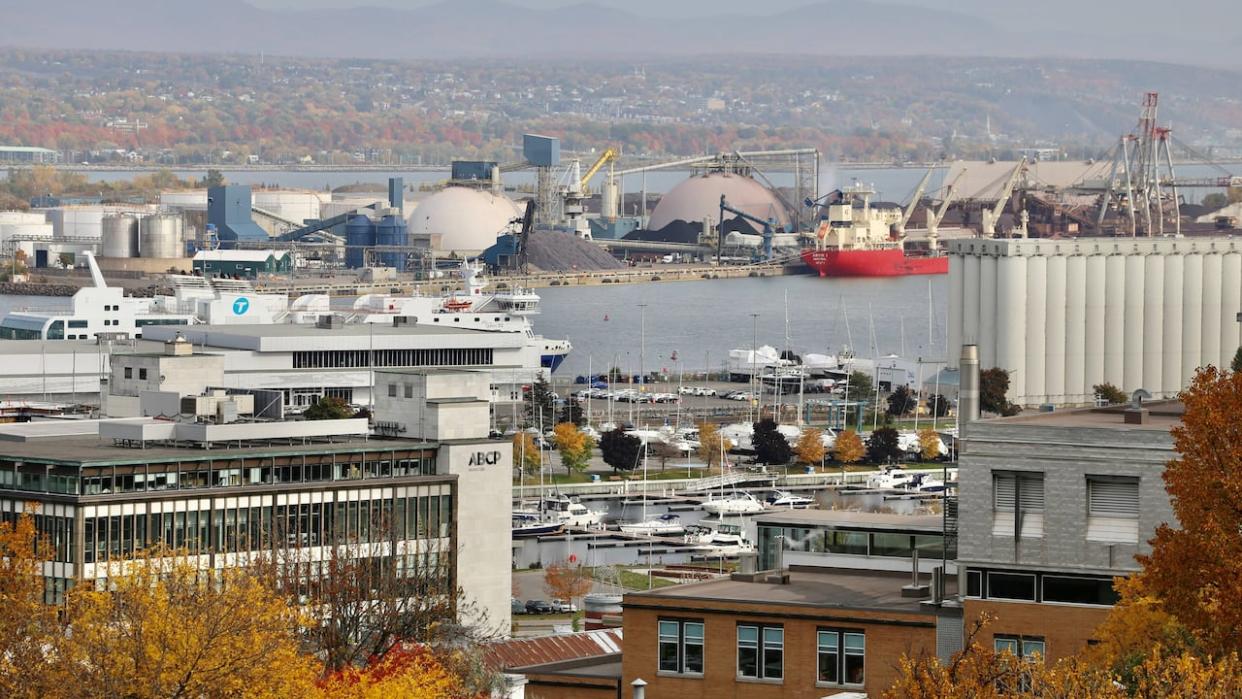
Quebec City has unveiled the results of air quality testing performed in 2022 at 10 stations across the city that show pollution levels rarely exceed the daily recommended limit but fail to show exactly where the pollution is coming from.
The results found the neighbourhood of Vieux-Limoilou had the worst air quality, confirming previous findings when the neighbourhood was identified alongside Quebec City's port as having the highest atmospheric concentration of nickel in all of Canada — a metal that is carcinogenic in high concentrations.
The tests, performed in industrial and residential areas between October and December last year, are part of a plan by the city, the provincial Environment Ministry and the Port of Quebec City to improve air quality in the region.
Quebec City Mayor Bruno Marchand says the results are 'reassuring' because the levels of fine particles in Limoilou exceeded the daily limit only once over a two-month period.
"No one is saying that we have reached our goal," said Marchand. "There are still things to improve."
Marchand says they have not identified the specific source causing pollution but the study identified three main elements that contribute to poor air quality in the area — exhaust from nearby highways, smoke from wood stoves and fireplaces and emissions from industrial activities.
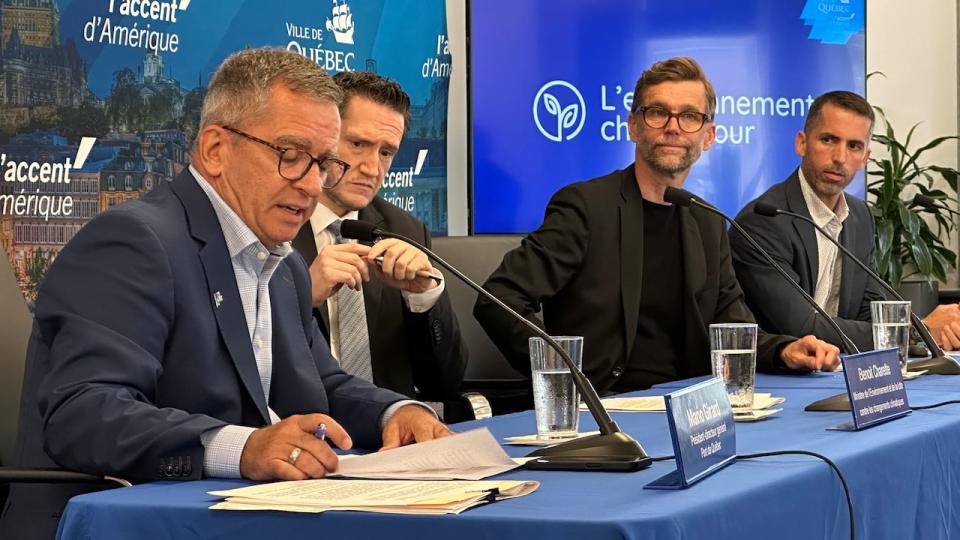
From left to right, Port of Quebec CEO Mario Girard, Quebec Environment Minister Benoit Charette, Quebec City Mayor Bruno Marchand and Matthieu Alibert, director of the Division Prévention et contrôle environnemental in Quebec City held a news conference Tuesday. (Sebastien Vachon/Radio-Canada)
Action plan a 'first' for the city
Raymond Poirer, president of a citizens' committee representing Vieux-Limoilou, doesn't find the results all that reassuring, saying "one time over the norm is one time too many."
He says the findings are similar to those shared over the past year by the city.
What is new, he says, is how the city is proposing to move forward — announcing an action plan with seven priorities to focus on over a five-year period.
"For the last 10 years, the citizens here have been mobilized. For the last few years there have been concrete actions that have been done by citizens and now we see the city of Quebec coming with a plan, a vision and that's something concrete," said Poirer.
"That's a first."
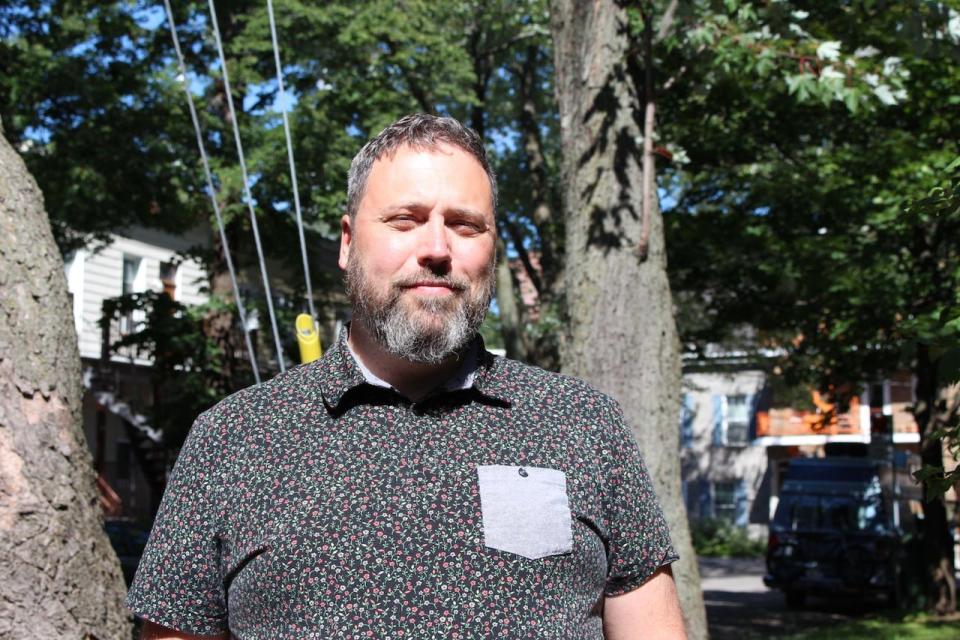
Raymond Poirier has been monitoring the air quality in Limoilou for the past decade. (Franca Mignacca/CBC)
Some of the measures include acquiring electric garbage trucks and buses to reduce emissions, regulating wood stoves and hosing down the tires on trucks in industrial areas to reduce the amount of dust being moved around.
Poirer, who started a citizen-led scientific program called Limoilair to monitor emissions, says this action plan will only work if partners step up to follow the city's lead.
"There's a lot of talk but not a lot of action," said Poirer.
"They actually need to … do the hard things and not necessarily the easy things."
A 'new era of collaboration'
To complement this plan, Port of Quebec CEO Mario Girard said Tuesday they have introduced their own measures to reduce nickel contamination. Among them, is supporting Glencore's new technologies to safely load nickel from Northern Quebec onto ships at the port.
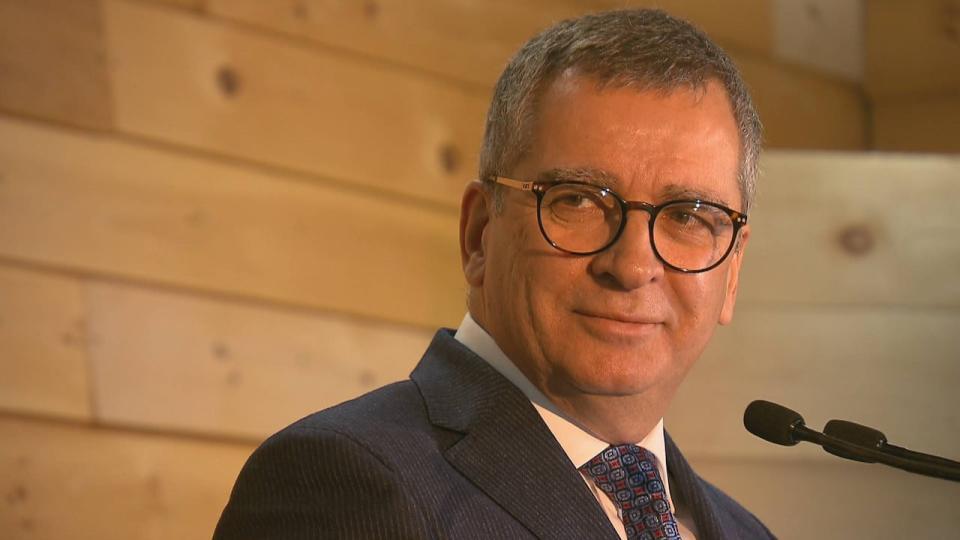
Port of Quebec CEO Mario Girard says they have introduced their own measures to reduce nickel contamination. (Marc-André Turgeon/Radio-Canada)
"The norm has been respected for the past year. There has been no exceeding of the norm, but we're not stopping there," said Girard.
"We have a lot of technologies we're looking at."
Quebec Environment Minister Benoit Charette says this partnership is creating "new era of collaboration."
"We made a commitment to be as transparent as possible, one, to show our interest in this file which is a priority for us but to also build trust," said Charette.
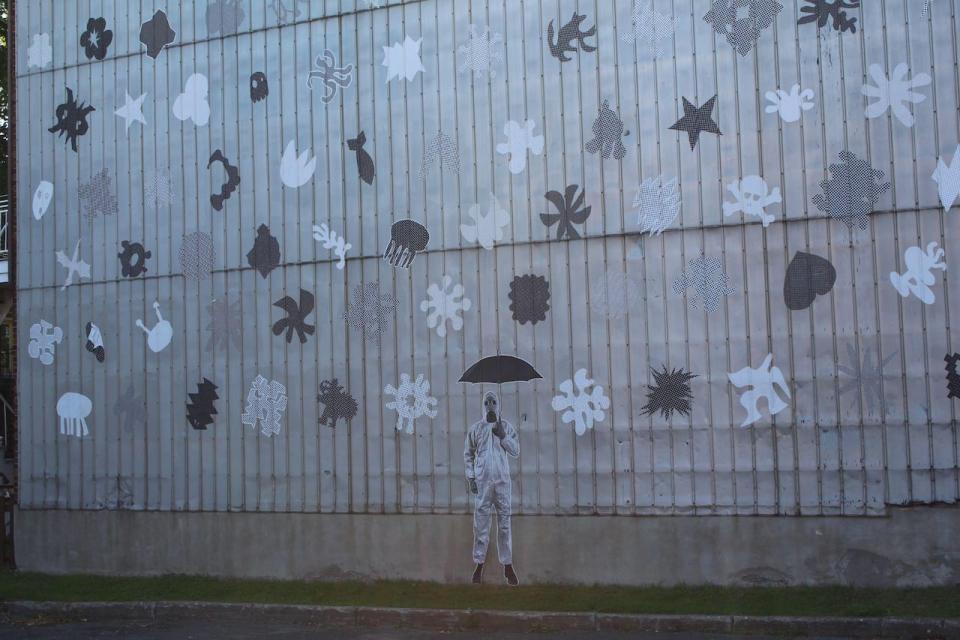
A mural done by artist Wartin Pantois in Quebec City's Limoilou neighbourhood represents the air pollution in the area. (Franca Mignacca/CBC)
Still, Limoilou resident Maïra Beaudry has many questions about how other industries will be regulated to mitigate pollutants.
"I think it's still very vague and we're here on the ground continuing to live the effects of the poor air quality," said Beaudry.
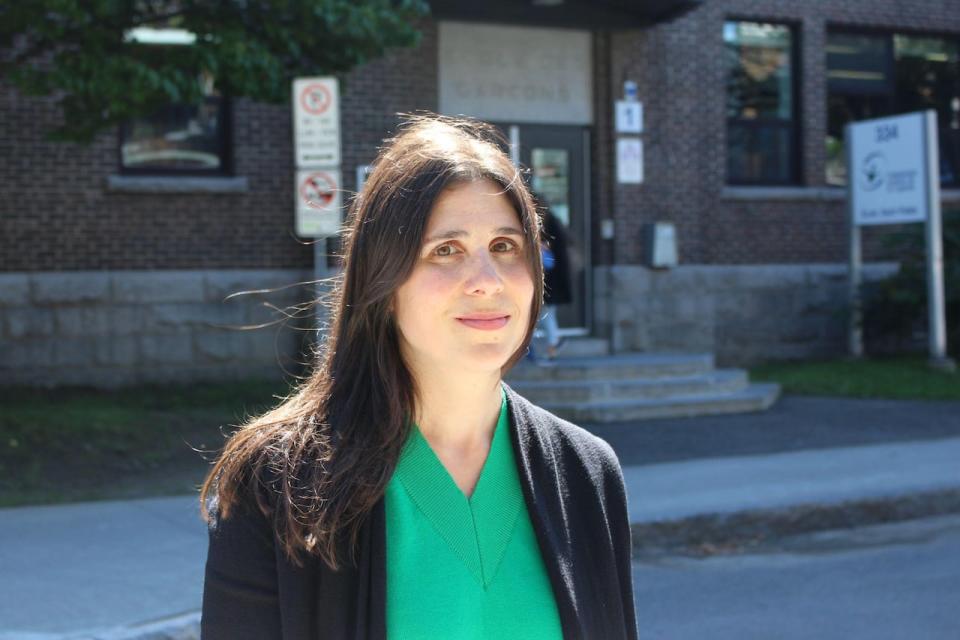
Maïra Beaudry says she worries about the health of her children growing up in the Limoilou area. (Franca Mignacca/CBC)
Since moving to the neighbourhood 12 years ago, she has been dealing with thick grey dust on her patio and windows and worries about the impact of the air quality on her children's health.
"I don't have the impression that this action plan that was presented will allow for any changes in the short term for us families in Limoilou," said Beaudry.


